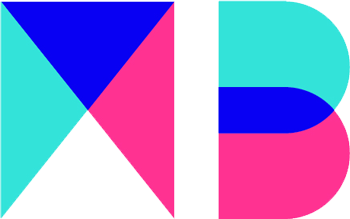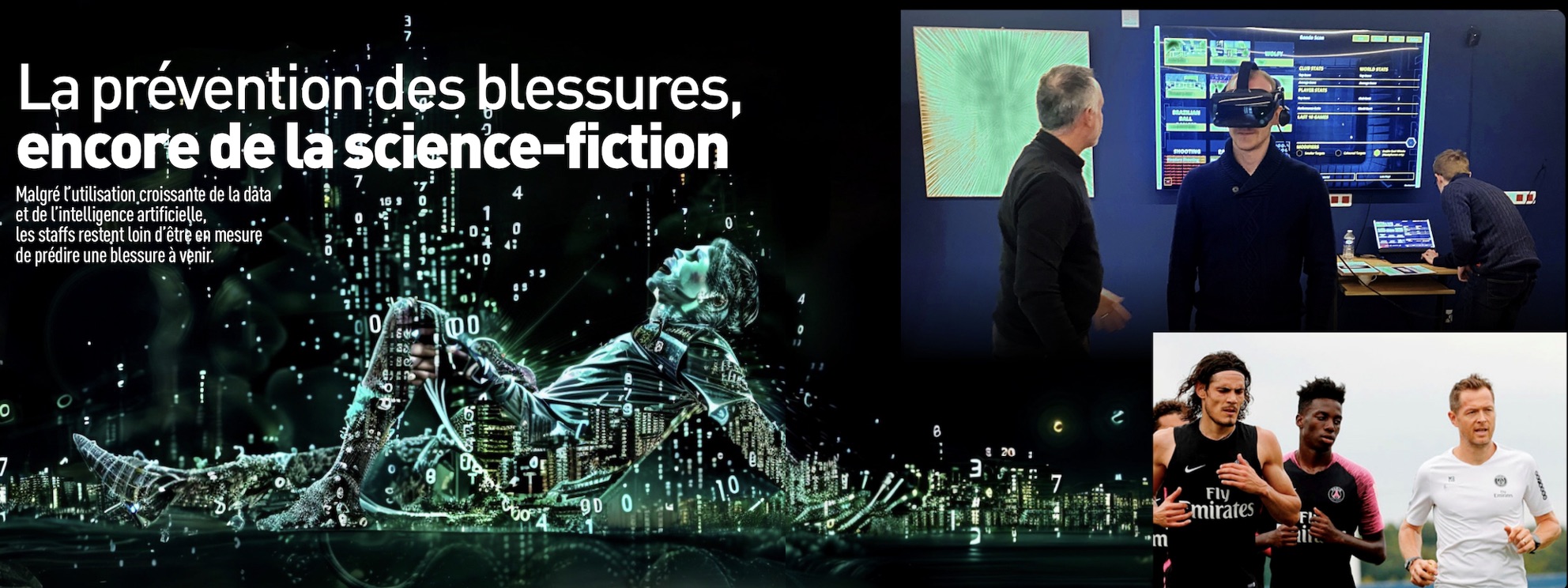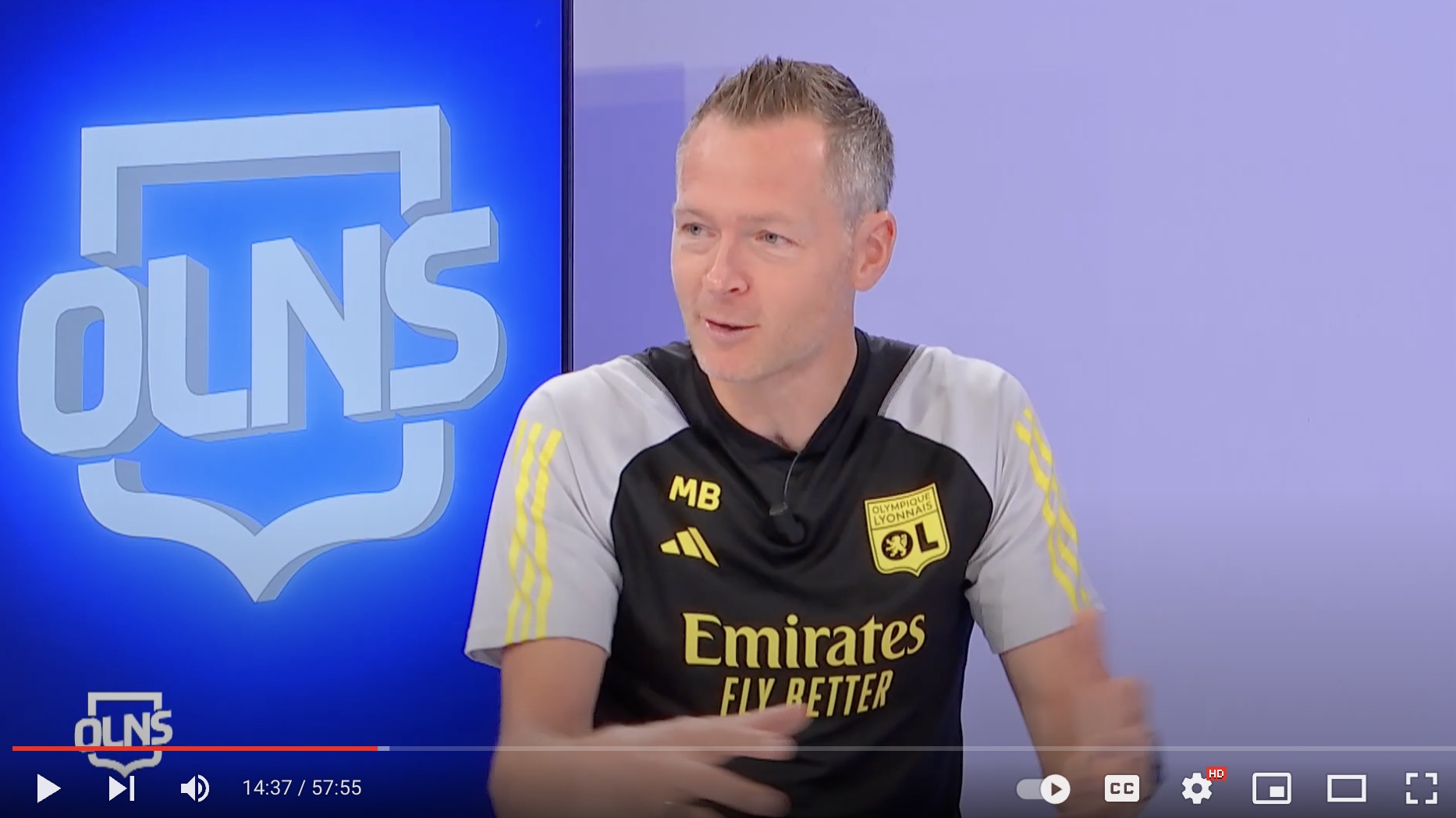The next piece of the puzzle
Interview originally published on September 14, 2020, on the KitmanLabs blog
Hi, Martin. Thanks for spending some time to share your story with us!
No worries, it’s always cool to discuss and share stories. Hopefully what I have to say is of interest!
How do you feel about the new role?
Well, it’s super exciting and it comes now at the right time in my career. I’ve had many different jobs in my life and I have always thought that what has helped my personal and professional development was this recurrent change in both life and job role – since every time I changed jobs we also relocated. I like this idea of 4-6 yrs cycles. It’s a bit as with your partner, when you’re in a long term relationship you need to break the routines, create those changes and add novelty to keep the energy and excitement going, right? With my wife we have put this as a priority for our family and especially the kids. And we’re loving it so far!
What got you interested in Kitman Labs in the first place?
Well… I had this connection with Darcy Norman, which got me really excited about the possibilities. He kept saying that he was “doing a lot of cool things with the different teams he was involved with…” which surprised me a bit. It’s only then that I discovered that Kitman Labs is way more than an AMS- the focus on partnering and being on the journey with the customers (research being just a piece of this, in fact) seduced me from the start. The commitment to developing meaningful products that solve real problems with an overall focus on innovation is something that I believe is unique to Kitman Labs.
What will this new Head of Research role do?
I’ll be definitely involved with all the different departments at Kitman Labs and with practitioners in the industry, working mainly at 3 levels:
- with the Performance Science and Analytics teams, helping customers to refine their on and off-field practices through high quality research,
- with the product and analytic teams to improve the product via both internal and external research, and
- on larger scale studies too, partnered with the market, which results may be of interest to a broader audience
What excites me the most about all this is being able to collaborate with all the departments on these various projects. We share the same vision of sport performance, data analytics and research… so the fit has been instantaneous.
In a nutshell I have always been interested in improving performance and health, and researching to get better outcomes for practitioners and athletes in the field – long before trying to publish for the sake of it.
A company like Kitman Labs has obviously similar objectives…. Also, during my first 2 weeks with the company I have been amazed by the professionalism and the incredible skills of everyone, but especially their mindset… we know that what matters most in life is attitude… open mindedness, empathy and so on, I don’t need to draw a picture you see what I mean. This is what I needed also at this stage of my career.
The role sounds fairly different to the previous ones you had earlier. Do you see it as a big stretch from working daily in trenches with a professional club?
Yes… and no. In fact, I see the Kitman Labs job as a really good extension of what I’ve done in the past, and this is what pushed me to take the offer when Stephen rang me a few months ago. If you consider what I have tried to achieve so far, you realise that the puzzle has been shaping cycle after cycle. And what I am going to do and learn with Kitman Labs is part of the larger scale puzzle. It’s a pretty logical step forward to me.
Tell us more about that puzzle shaping cycle after cycle…
I started as a Strength and Conditioning coach for many years, I loved it, but I needed more answers to my practices…. so I started to research … i enjoyed it a lot and wanted to do more in this area… to be a better practitioner myself, and as a consequence also have an impact in the field of Strength & Conditioning and Sport Science. I then enrolled into a PhD and following some lab-based research (sleep, simulated hypoxia) I got a job as a lecturer in France. This is when I started to test a lot of more practical stuff including building the 30-15IFT, examining acute and chronic responses to high-intensity training drills and other heart rate variability concepts for example… it’s been incredibly intense and productive, but after about 4 years at the Uni of Amiens, all this started to miss a bit of depth in terms of performance focus and it was limited to the sporting population available in the region.
We then moved to Qatar. In Aspire, I started to put Sport Science into practice with the young athletes of the academy. In parallel to that, as I say this with a lot of humility, with the great team of researchers and practitioners there we probably produced some of the best applied researches with players, from youth soccer development, assessment, match demands and training interventions, to bringing some top teams to Qatar to look at heat acclimation benefits (various soccer teams, Carlton FC AFL) or to La Paz in Bolivia to assess the effect of high altitude camps (Under 17 in preparation of the Asian Cup). It was simply incredible to run this stuff since it was about preparing for real competitions, so not just research organised for the sake of a study…
But I then realised I was spending too much time researching and was starting to miss again the application side of things. I knew that to keep on having an impact, I needed a change to figure out why the world of elite sport is so often impermeable to the integration of research-informed practices. It’s only being with top players that we can gain the understanding of the overall context and learn about what’s applicable… or not.
My role at PSG then was about putting all this research into practice, and being back on the field too, which I had missed. Overall, it was an incredible learning curve and with Ben Simpson and Mathieu Lacome we managed to implement some really cool things in terms of communication processes, systems, assessments and monitoring tools.
Confronting ideas, philosophies with practitioners from different horizons with each their own specific approaches, and having tomorrow’s game as the almost unique objective made me understand even more the need to make the differences between interesting and important stuff. Colleagues ended up being my internal “reviewers” when discussing what would be of use or realistic in our specific context. Ideas are good but become great only if they can be implemented.
This was incredibly enriching but after 6 years I also reached the conclusion that this particular context had large limitations in itself… a lot of things we wanted to do, implement, test, or research were often impossible for various reasons. This is often difficult to understand for people like us coming with a sport science background why some people are so poorly inclined to at least consider the scientific evidence. But you don’t change people. Frustrations then started to build up, with a strange feeling for Sport Sciences practices to be too often unconsidered and in turn, underused. In May this year, the universe decided that it was time to move on.
So tell us where you see Kitman Labs fitting in this, then?
Sorry for the long story but having all this in mind, the role with Kitman Labs makes total sense to me today. It’s a way of putting all together now. Okay, I won’t be in the trenches every single day anymore, but to be honest if you’ve done 300 or 1000 games, does this change much in terms of experience and understanding of the context?
With my new role I’ll be definitely more on the “slow” part of things to use the terminology from Kahneman, reformulated by Aaron Coutts (working slow with research to support the fast, on-field practitioners).
I first see with Kitman Labs the collaboration with the other company members as a way to enlarge my understanding of high performance, while learning from their perspectives and experiences, and being exposed to new disciplines (I don’t know anything about sales for example, but it’s also a filter to detect with really matters in the end!!).
Working with so many different customers also provides more people to interact with, more contexts to learn from which can improve my understanding of practitioners’ needs to better refine research questions. It’s also a way to impact our field at a larger scale (more teams, more sports), and to get a wider field of application of the ideas we believe in, to test them in real life scenarios and again, re-evaluate those. What I mean is that the restrictions and limited space inherent to a single club disappear when working with a large customer database. What can’t be done in one club is likely to be feasible with another. It’s also the way a given intervention or process is adapted to a specific club context that is an information in itself.
With the horsepower of the collaborative work we are going to do, I believe that this role with Kitman Labs will allow me to be involved in incredible and unique projects, including large samples and high levels analytics for example. The advancement of the company in the field of analytics (with Derek McHugh’s team) is top class and really incredible. They do things that I would never be able to do on my own for sure!!
Finally, putting these findings and ideas into the software is also a way to offer customers a tool that is going to support them when applying our common ideas and research findings.
Overall, I am going to learn a lot and this is incredibly exciting!
Great, thanks for the detailed response! Wish you all the best for this new life cycle then!?
No worries, and thanks for the invitation to chat. cheers.



